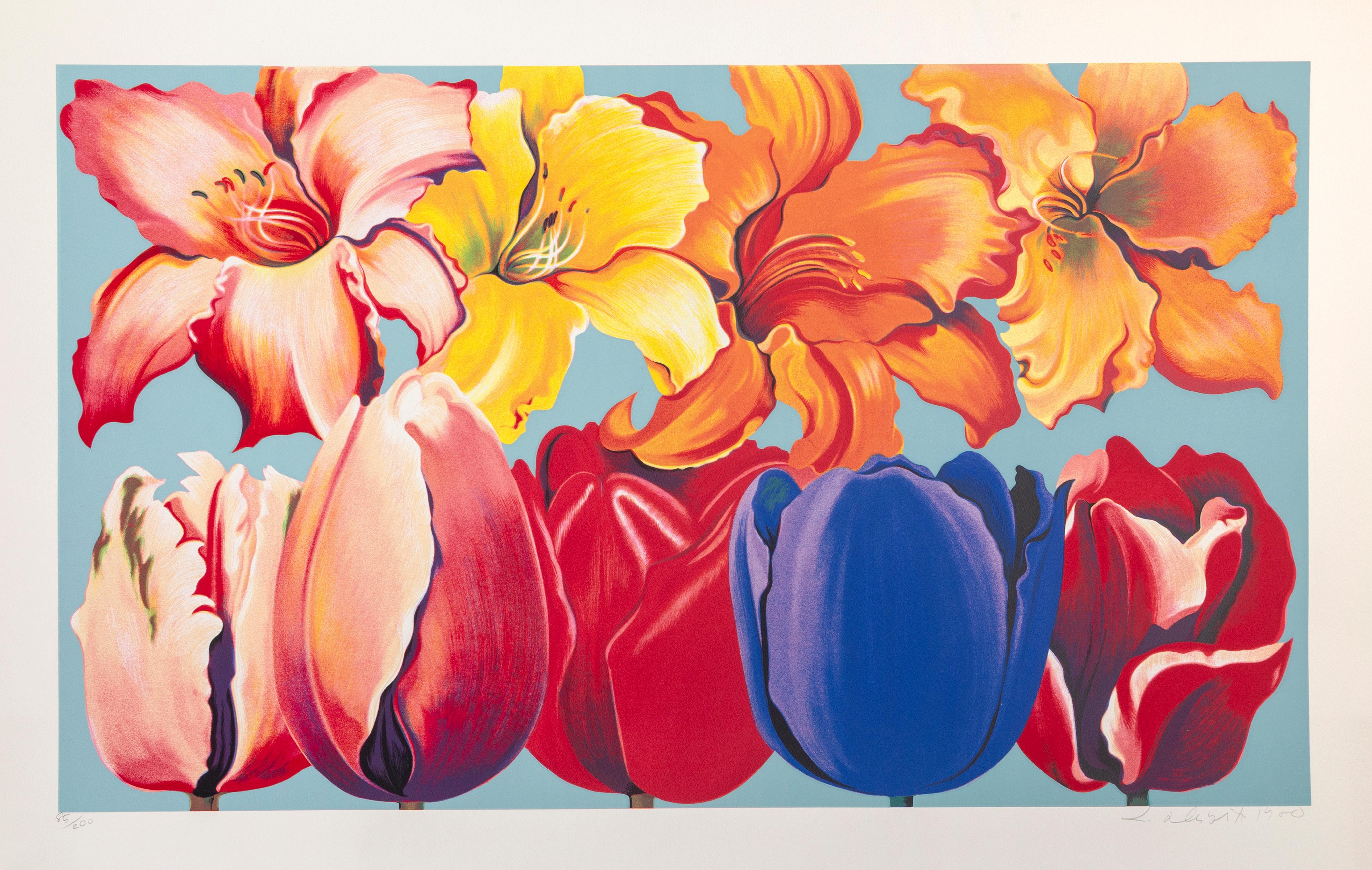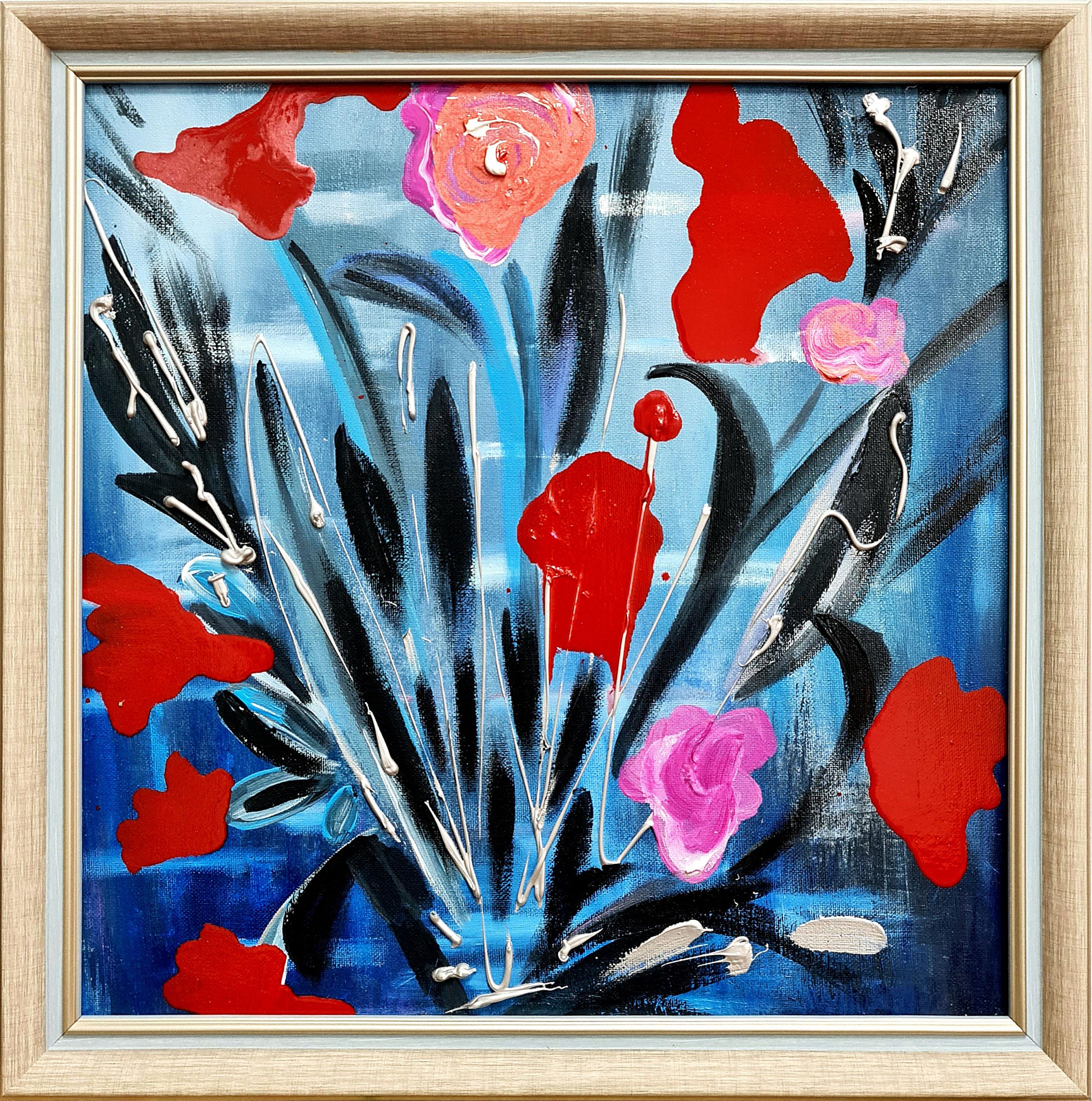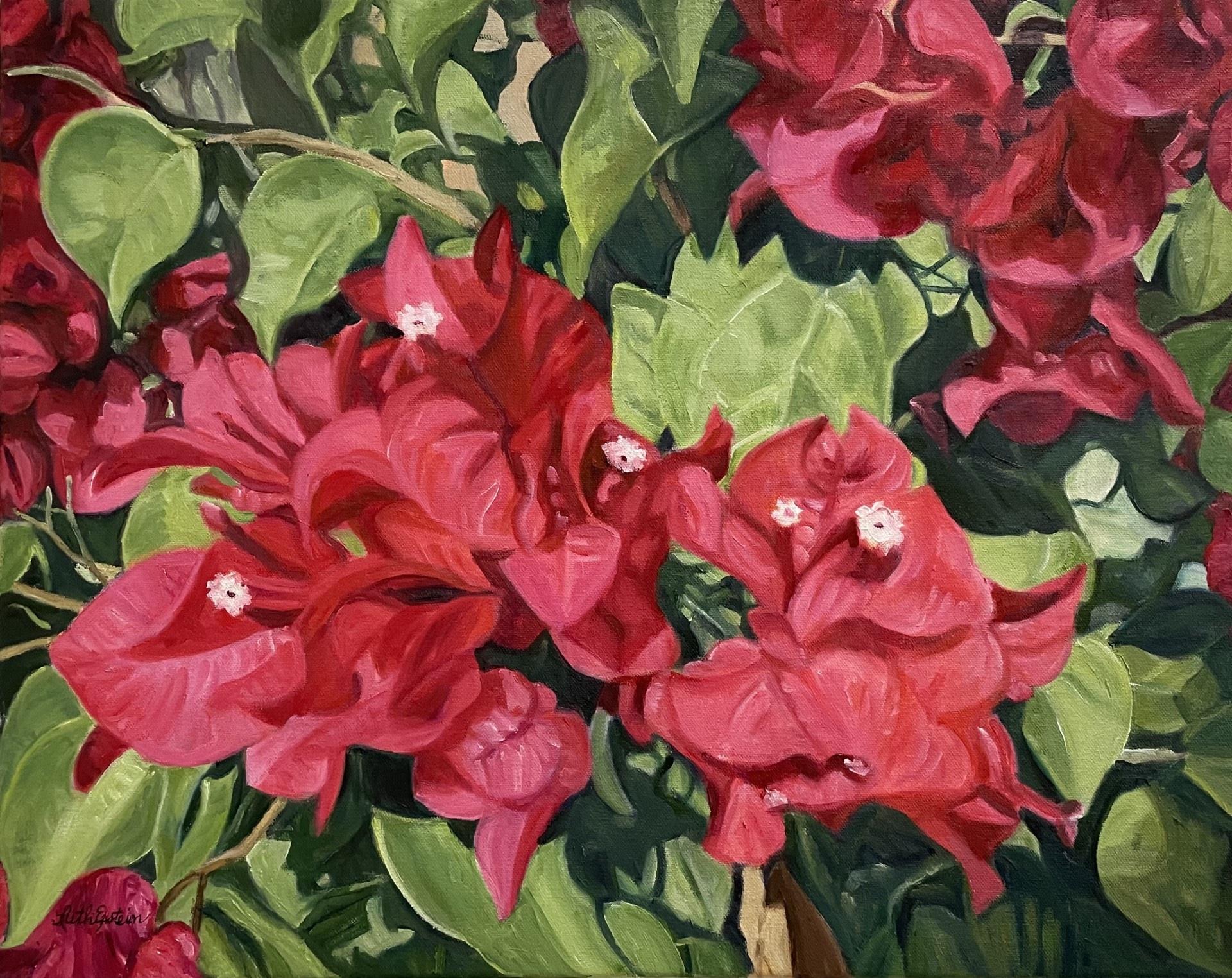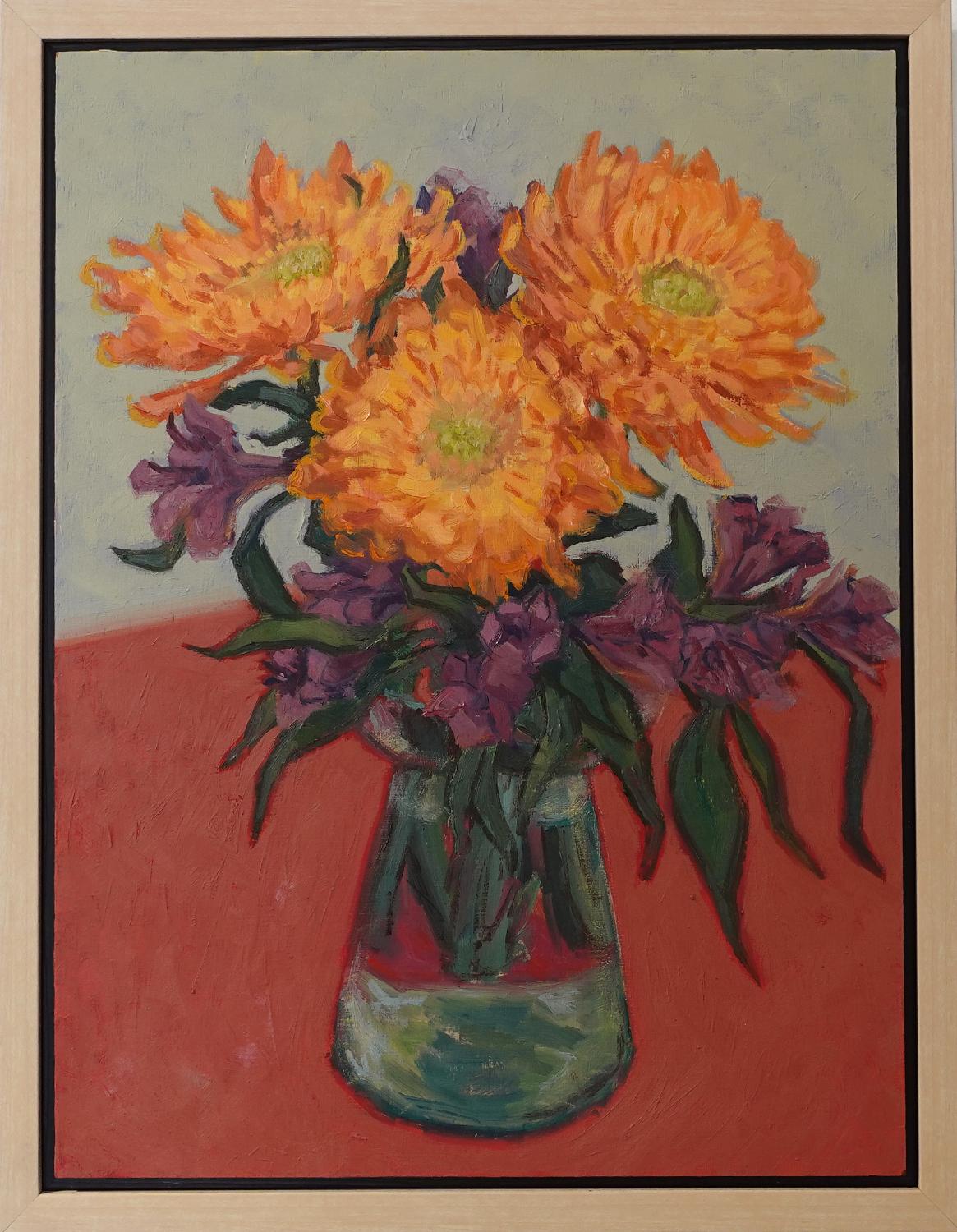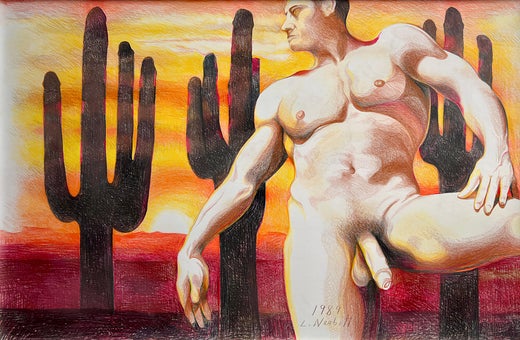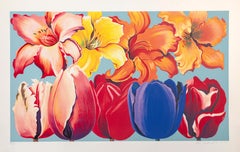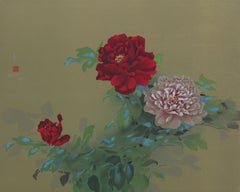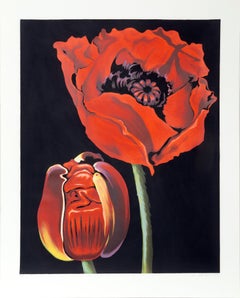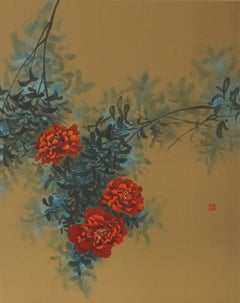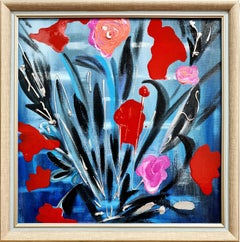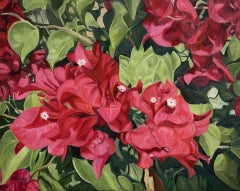Lowell NesbittIsland of Red Flowers1979
1979
About the Item
- Creator:Lowell Nesbitt (1933-1993, American)
- Creation Year:1979
- Dimensions:Height: 75 in (190.5 cm)Width: 95 in (241.3 cm)
- Medium:
- Movement & Style:
- Period:
- Condition:In very good condition.
- Gallery Location:Long Island City, NY
- Reference Number:1stDibs: LU46610224292
Lowell Nesbitt
Lowell Nesbitt was one of the most celebrated and noted artists for his floral works of art. An artist with a highly personal style, he made realistic studies of many themes throughout his career. His most well-known series, and perhaps his most beautiful and poetic, are the more than four hundred works he created using the flower as a theme. Beginning with his first show in 1957, Nesbitt had more than 80 one-man shows. His painting, drawings and prints are included in the collections of many prestigious museums such as the Metropolitan Museum of Fine Art in New York and the National Gallery of Fine Art in Washington, D.C.
- ShippingRetrieving quote...Shipping from: Long Island City, NY
- Return Policy
More From This Seller
View All1980s American Realist Still-life Prints
Screen
1980s Impressionist Still-life Prints
Lithograph
1970s Photorealist Still-life Prints
Screen
1980s Impressionist Still-life Prints
Lithograph
1970s American Realist Still-life Prints
Lithograph
1980s Contemporary Still-life Prints
Screen
You May Also Like
1970s Realist Figurative Paintings
Watercolor, Rag Paper
2010s American Realist Figurative Paintings
Ceramic, Oil
2010s Contemporary Figurative Paintings
Canvas, Oil
2010s Contemporary Still-life Paintings
Canvas, Wood, Oil
2010s American Impressionist Still-life Paintings
Oil, Wood Panel
20th Century Still-life Paintings
Oil
Read More
Romare Bearden’s Humanity Infuses His Bright, Bold Art
Through collage, painting and printmaking, the artist foregrounded Black life in America in revolutionary new ways.
Chryssa’s 1962 Neon Sculpture Was Way ahead of the Art-World Curve
By working with lettering, neon and Pop imagery, Chryssa pioneered several postmodern themes at a time when most male artists detested commercial mediums.
